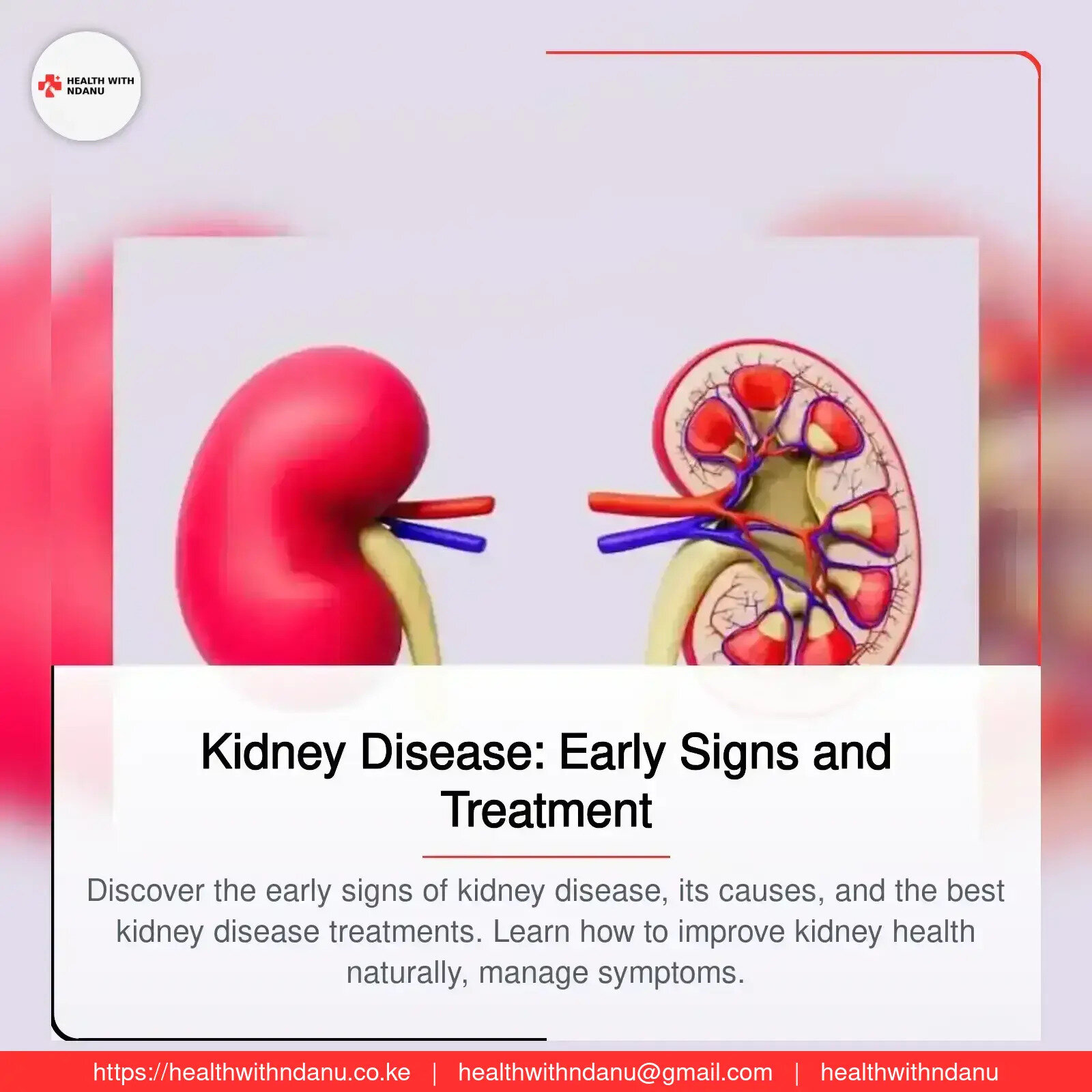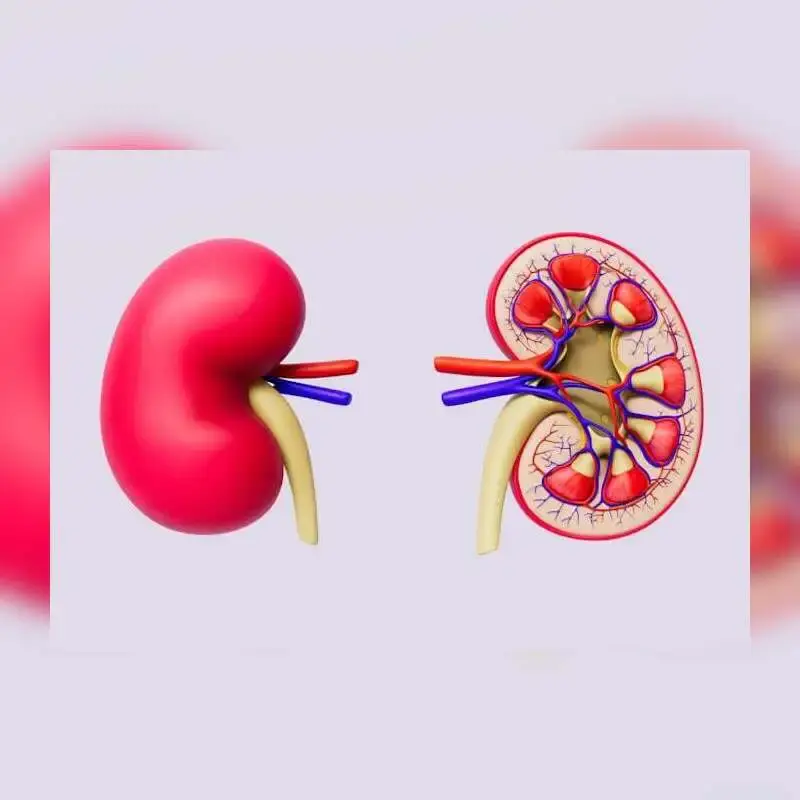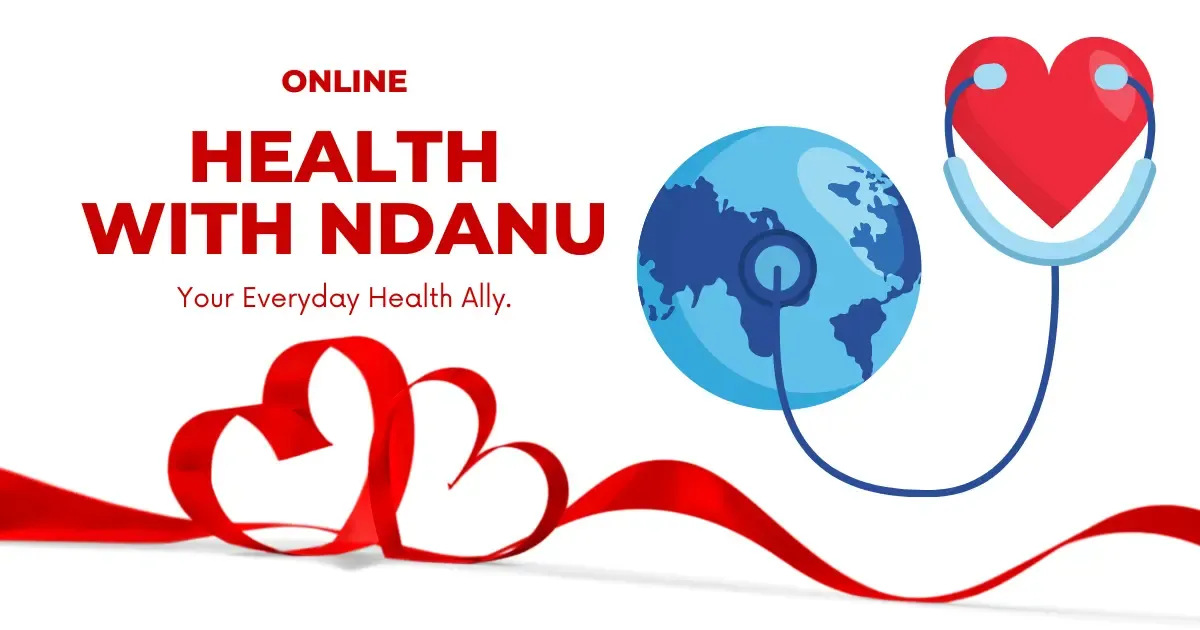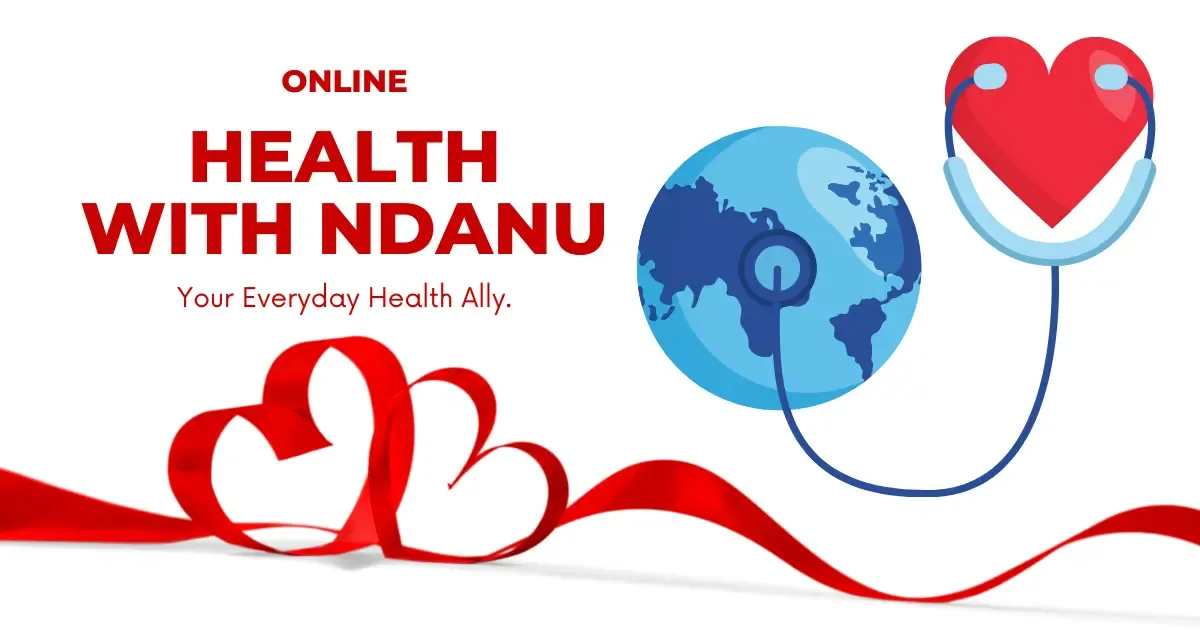Kidney Disease: Early Signs and Treatment
- by Diana Ndanu
- 15 March, 2025
- 0 Comments
- 6 Mins



Introduction
Kidney disease is a global health crisis affecting millions of people, yet it often goes unnoticed until significant damage has occurred. The kidneys are essential for filtering toxins, balancing fluids, and regulating blood pressure, but when they fail, the consequences can be life-threatening.
This comprehensive guide will explore everything you need to know about kidney disease, including causes, symptoms, types, treatment options, lifestyle changes, and ways to prevent kidney failure. If you or a loved one is battling kidney disease, remember: there is always hope. Many people continue to live full, active lives with proper treatment and care.
"For I will restore health to you and heal you of your wounds, says the Lord." — Jeremiah 30:17
Understanding Kidney Disease: The Silent Killer
The kidneys are two bean-shaped organs responsible for:
✔️ Filtering waste and toxins from the blood.
✔️ Balancing electrolytes like sodium and potassium.
✔️ Regulating blood pressure by producing hormones.
✔️ Producing red blood cells by releasing erythropoietin.
✔️ Maintaining fluid balance to prevent dehydration or swelling.
When kidney function declines, waste builds up in the body, leading to serious health complications. Many people don’t realize they have kidney disease until it's too late because the symptoms are often mild or mistaken for other conditions.
According to global health studies, 1 in 10 people worldwide suffer from some form of kidney disease, and millions remain undiagnosed.
Early Signs and Symptoms of Kidney Disease
Kidney disease often develops slowly, making it difficult to detect until severe damage has occurred. However, being aware of the early warning signs can help with early diagnosis and better treatment outcomes.
Common Symptoms of Kidney Disease
- Fatigue and weakness – Toxins build up in the blood, making you feel constantly tired.
- Swelling (Edema) – Fluid retention leads to swollen feet, ankles, hands, or the face.
- Changes in urination – Frequent urination, foamy urine, dark-colored urine, or reduced urine output.
- Persistent nausea and vomiting – Caused by an accumulation of waste in the bloodstream.
- Loss of appetite and unexplained weight loss.
- High blood pressure (Hypertension) – Damaged kidneys struggle to regulate blood pressure.
- Shortness of breath – Excess fluid in the lungs makes breathing difficult.
- Difficulty concentrating and memory issues – Toxin buildup can affect brain function.
- Metallic taste in the mouth and bad breath – A result of toxin accumulation in the body.
⚠️ If you experience these symptoms, consult a doctor immediately. Early detection can slow or even prevent kidney failure!
Types of Kidney Disease
There are several types of kidney diseases, each with unique causes, symptoms, and treatment approaches.
1. Chronic Kidney Disease (CKD)
This is a gradual and irreversible loss of kidney function over time, usually caused by diabetes, high blood pressure, or genetic factors. CKD progresses in five stages, with stage 5 (End-Stage Renal Disease) requiring dialysis or a kidney transplant.
2. Acute Kidney Injury (AKI)
A sudden loss of kidney function caused by severe dehydration, infections, medications, or a sudden drop in blood flow. Unlike CKD, AKI can be reversed if treated early.
3. Polycystic Kidney Disease (PKD)
A genetic disorder that causes cysts to grow in the kidneys, leading to pain, high blood pressure, and eventual kidney failure.
4. Kidney Stones
Hard mineral deposits that form in the kidneys and cause severe pain, blood in urine, and difficulty urinating.
5. Glomerulonephritis
An inflammation of the kidney’s filtering units (glomeruli), often caused by infections or autoimmune conditions.
6. End-Stage Renal Disease (ESRD)
The final stage of CKD where the kidneys lose nearly all function, requiring dialysis or a kidney transplant to survive.
Causes and Risk Factors of Kidney Disease
Several factors can increase the risk of developing kidney disease:
✔️ Diabetes – The leading cause of kidney failure due to high blood sugar damaging the kidneys.
✔️ High Blood Pressure – Puts stress on kidney blood vessels, leading to gradual damage.
✔️ Heart Disease – Weak heart function affects kidney health.
✔️ Obesity – Excess weight increases the risk of diabetes and high blood pressure.
✔️ Family History – Genetic factors can make you more prone to kidney disease.
✔️ Frequent use of painkillers – Long-term use of NSAIDs (like ibuprofen) can damage the kidneys.
✔️ Smoking and Alcohol Abuse – Both impair kidney function and blood flow.
Treatment and Management of Kidney Disease
Although kidney disease can be progressive, proper treatment can slow its advancement and improve quality of life.
1. Medications
Doctors may prescribe medications to control:
💊 Blood pressure – ACE inhibitors or ARBs protect the kidneys.
💊 Blood sugar – Diabetes medications help prevent further damage.
💊 Anemia – Iron supplements or erythropoietin-stimulating agents boost red blood cell production.
💊 Diuretics – Reduce fluid buildup and swelling.
2. Dialysis
For advanced kidney disease, dialysis helps remove waste and excess fluids when the kidneys no longer function.
3. Kidney Transplant
A healthy kidney from a donor can restore normal kidney function and eliminate the need for dialysis.
4. Diet and Lifestyle Changes
A kidney-friendly diet is essential for managing symptoms:
🥦 Eat more fresh fruits and vegetables – But limit potassium-rich foods if advised.
🧂 Reduce salt intake – Helps manage blood pressure and prevent fluid retention.
💧 Stay hydrated – Water helps flush out toxins but should be regulated in advanced CKD.
🍗 Choose lean proteins – Fish, poultry, and plant-based proteins are kidney-friendly options.
🚶♂️ Exercise regularly – Improves circulation and overall health.
🚫 Quit smoking and limit alcohol – Both worsen kidney function.
Living with Kidney Disease: Finding Strength and Hope
A kidney disease diagnosis is not the end of the road. Many people live long and fulfilling lives despite their condition.
💖 You are stronger than you think – Your body may be battling, but your spirit is resilient.
🙏 You are not alone – Support groups, family, and faith can help you through.
🌅 There is hope – Advances in medicine mean better treatments and longer lives for kidney patients.
Even in difficult times, faith brings healing and hope.
"But those who hope in the Lord will renew their strength. They will soar on wings like eagles; they will run and not grow weary, they will walk and not be faint." — Isaiah 40:31
Final Thoughts: Spreading Awareness and Saving Lives
Kidney disease is preventable, manageable, and treatable. Early detection, a healthy lifestyle, and regular medical checkups can significantly reduce the risk.
💡 Take action today – get screened, eat healthily, and educate others. If you or a loved one is battling kidney disease, remember your story isn’t over—your best days are still ahead!
🔗 Share this article to spread kidney disease awareness and help save lives!
Got Your Own Experience? Share with us
Kategoria Maarufu
Blogu Zinazotembelewa Zaidi
Daily Newsletter
Get all the top stories from Blogs to keep track.



